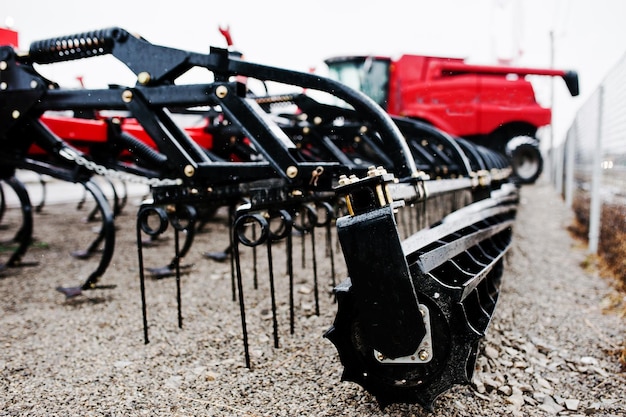Farm planning is more than just a strategy; it’s a roadmap that guides farmers toward achieving their goals and maximizing the potential of their land. As someone deeply invested in agricultural practices, I’ve learned that effective farm planning can lead to greater efficiency, sustainability, and profitability. Whether you’re a seasoned farmer or just starting out, these six expert tips will empower you to optimize your farming operation.
1. Understand Your Soil Quality

Soil is the foundation of any successful farm. Having a comprehensive understanding of your soil quality is crucial for making informed decisions about what crops to plant and how to manage your resources effectively.
Conduct Soil Tests
Start by conducting soil tests to evaluate the fertility, pH, and organic matter content of your land. You can get assistance from local service centers, like the USDA Service Center, which offer testing services and guidance. This information will help you tailor your farming practices to enhance soil fertility and improve crop yields.
Improve Soil Health
Once you know your soil’s strengths and weaknesses, consider practices that enhance its health. Incorporating organic matter, such as compost or cover crops, can significantly improve soil structure and nutrient content. Healthy soil is akin to a thriving ecosystem; it supports robust crop production and reduces the need for chemical fertilizers, leading to a more sustainable farming operation.
2. Develop a Comprehensive Farm Plan
A well-structured farm plan is your blueprint for success. It outlines your operational goals, resource allocation, and strategies for achieving your vision.
Define Your Goals
Start by clearly defining your long-term goals. Are you aiming for organic farming certification? Or perhaps you want to diversify your crops? Your objectives will guide your planning process. Craft a mission statement that encapsulates your vision, which can serve as a constant reminder of what you’re working towards.
Use Farm Management Software
Consider utilizing farm management software to streamline your planning process. These tools can help you track expenses, manage crop rotation, and even forecast production. With a comprehensive farm business plan in place, you’ll be equipped to make strategic decisions that align with your goals.
3. Optimize Water Management
Water is a precious resource in agriculture, and effective water management is essential for maximizing land potential. With the right strategies, you can ensure that your crops receive the moisture they need without waste.
Irrigation Systems
Evaluate your current irrigation systems. Are they efficient? Drip irrigation, for example, delivers water directly to the roots, minimizing evaporation and runoff. By investing in modern irrigation systems, you can improve water efficiency and reduce costs in the long run.
Rainwater Harvesting
Consider implementing rainwater harvesting systems to collect and store rainwater for irrigation. This not only conserves water but also reduces your reliance on municipal sources. By being proactive about water management, you’ll enhance your farm’s sustainability and productivity.
4. Plan for Livestock and Crop Integration
If your farming operation includes both crops and livestock, planning for their integration can yield significant benefits. This holistic approach can enhance nutrient cycling and improve overall farm efficiency.
Crop Rotation and Livestock Grazing
Implementing a crop rotation plan can help maintain soil fertility and reduce pest pressures. After harvesting crops, consider incorporating livestock grazing. Animals can contribute organic matter through manure, enriching the soil and promoting healthier crops in subsequent seasons.
Diversified Farm Products
By diversifying your farm products, such as selling crops and livestock, you create multiple income streams. This not only increases profitability but also spreads risk. Think of it as a safety net; if one crop fails, you still have other revenue sources to rely on.
5. Assess Equipment Needs

Proper equipment is vital for efficient farm operations. Understanding your equipment needs can significantly impact productivity and costs.
Evaluate Current Equipment
Take stock of your existing equipment. Is it adequate for your needs? Are there tools that could improve your workflow? For instance, investing in modern machinery can save time and labor costs, allowing you to focus on more critical aspects of your farming operation.
Plan for Future Needs
As your farm grows, so will your equipment needs. Create a plan for future purchases based on projected growth and changes in your farm layout. This proactive approach will ensure that you’re always equipped to handle the demands of your farming business.
6. Engage Family and Community
Farming is often a family affair, and involving family members in the planning process can lead to better decision-making and shared vision. Additionally, engaging with your local farming community can provide valuable insights and support.
Collaborative Planning
Hold family meetings to discuss the farm’s direction and involve everyone in the decision-making process. This not only fosters teamwork but also ensures that everyone is on the same page regarding the farm’s goals and operations.
Networking and Knowledge Sharing
Engage with local farming groups or associations. These networks can be invaluable for sharing knowledge and experiences. Attend workshops or seminars offered by agricultural institutions, such as Ohio State University, to stay updated on the latest farming practices and trends.
Conclusion: Your Path to Success in Farm Planning
Farm planning is an ongoing process that requires dedication and adaptability. By understanding your soil quality, developing a comprehensive farm plan, optimizing water management, integrating livestock and crops, assessing equipment needs, and engaging with family and community, you’ll be well on your way to maximizing your land’s potential.
Remember, each farm is unique, and there’s no one-size-fits-all approach. Take the time to understand your specific needs and goals, and don’t hesitate to seek advice from experts in the field. With the right strategies in place, your farm can thrive, ensuring not just profitability but also a sustainable future for generations to come.
So, are you ready to take your farm planning to the next level? Let’s get started on this exciting journey together!

